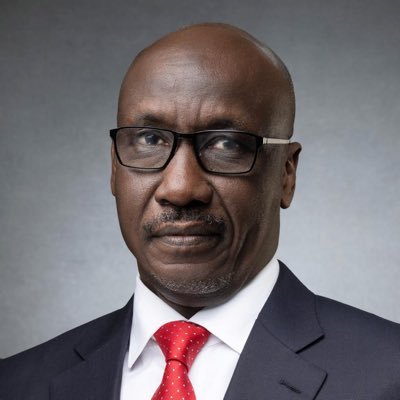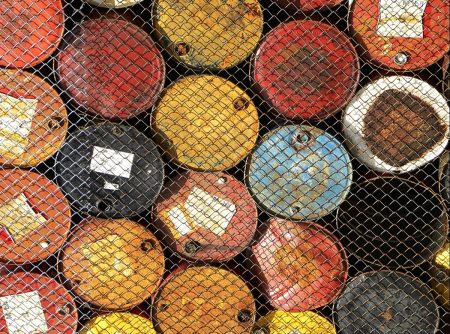
07 September 2016, Abuja — More than 13 years after the award of the first marginal fields’ Oil Mining Leases, OML, and the subsequent award of a total of 30 OMLs, marginal oil fields are yet to make any significant impact in the Nigerian oil and gas industry and are currently accounting for less than four percent of the country’s crude oil output.
The marginal field is any field that has oil and gas reserves booked and reported annually to the Department of Petroleum Resources, DPR, but remained unproduced for a period of over 10 years.
Marginal oil field programme was introduced to encourage increased indigenous participation in the Nigerian petroleum sector and also to grow the country’s crude oil and gas reserves among others.
But little success had been recorded in that regard. In 2003, 24, fields were awarded to 31 companies, while the DPR stated that the fields are presently at various stages of development, with only nine of the fields producing.
DPR has listed active and productive marginal fields as follows:
– Platform Petroleum: Egbaoma – OML 38;
– Walter Smith & Morris Petroleum: Ibigwe – OML 16;
– Frontier Oil Ltd: Uquo – OML 13;
– Britania-U Nig. Ltd.: Ajapa – OML 90;
– Midwestern Oil & Gas/Suntrust Oil Ltd: Umusadege – OML 56;
– Pillar Oil Ltd: Umusati – OML 56;
– Energia Limited/Unipetrol Petroleum Limited (bought over by Oando): Ebendo – OML 56;
– Oriental Energy: Ebok – OML 67;
– Niger Delta Petroleum Ltd: Ogbelle – OML 54.
The Department said the nine productive fields were able to grow their reserves from 141 million barrels in 2004, to 302.6 million barrels in 2013, while more recently, the Nigerian National Petroleum Corporation, NNPC, said marginal fields operators, only accounted for 3.09 percent of the country’s crude oil output between June 2015 and May 2016.
Specifically, NNPC stated that marginal fields produced 23.243 million barrels of crude oil from June 2015 to May 2016, compared to a total 751.882 million barrels produced in the period under review.
Difficulty in accessing finance was listed as the major factor responsible for the inability of a majority of the license holders to develop the fields. Other factors include the highly technical nature of the petroleum industry and other issues bothering on insecurity and a difficult operating environment.
General Secretary, Petroleum and Natural Gas Senior Staff Association of Nigeria, PENGASSAN, Mr. Bayo Olowoshile, told Sweetcrude that the financial challenges faced by the indigenous operators have made the operators act as fronts or proxy for foreign investors, who end up buying the assets.
“In reality, the indigenous investors are still far from pooling that resources for the oil and gas business, and as such, most of them act as fronts or proxy for the real foreign owners, who truly buy the asset and pay commissions to indigenous owners,” Olowoshile explained.
Continuing, Olowoshile stated, “Oil production is highly technical and capital intensive. And it goes with a lot of risks, especially as it affects the investment layout. More so, access to the colossal amount of funds required for oil and gas business is becoming a big challenge going by the difficult environment that Nigeria poses to investors and financiers from the outside world, who wants to partner with the indigenous owners and operators of the marginal field. “This status is compounded by the actions of International Oil Companies, IOCs, who are now abandoning and/or divesting with wild excuses of supporting government’s efforts at relinquishing more oil fields to indigenous investors.
“Some IOCs frankly, insist that pipeline sabotage, oil thefts, foggy state of fiscal and non-fiscal provisions of the impending PIB, and security challenges, are deterring them in mobilising needed investment for Nigeria’s oil and gas sector.”
In response to the failure of the operators to developed the fields, the DPR had in 2014, stated that OML, awarded to indigenous companies as marginal fields in 2003, which are yet to be developed by their owners would be revoked in March 2015. This decision by the DPR puts about 18 of the oil fields under the 30 OMLs at the risk of being revoked.
However, one year after, the licenses are yet to be revoked, as nothing has been heard from the DPR about the planned revocation. Also, in spite of the failings of the past licensees, the Federal Government in 2013 commenced the processes for a second bid for the auction of 31 marginal oil fields.
Of the 31 fields, 16 were located onshore, while the other 15 were on the continental shelf of the country’s Niger Delta. Though the former Minister of Petroleum Resources, Mrs. Diezani Alison-Madueke, said that the process would have commenced in 2010, when the decision was taken by the government, the bid round and eventual award of the oil fields still never saw the light of day.
Operators were of the view that the suspended marginal oil field award process was as a result of the non-passage of the Petroleum Industry Bill, PIB, and the unimpressive performance of the marginal fields’ operators.
Managing Director/Chief Executive Officer, First Exploration and Petroleum Development Company, Mr. Ademola Adeyemi-Bero, questioned the ability of marginal field operators to meet the target of sustainably adding 100,000 barrels of oil per day and 250 million Standard Cubic Feet per day of gas by 2020.
Adeyemi-Bero, in his presentation on marginal fields’ development obtained by Sweetcrude, listed the challenges and hurdles facing the marginal field operators to include the fact that start-up assets are largely sub-economic, while access to additional assets is nearly impossible.
He further stated that the operators are faced with difficulties in agreeing on operational synergies with lease owners, comprising mainly IOCs, while at the same time, the marginal field operators are in stiff competition with IOCs in the areas of technology and personnel.
He argued that the operating environment is presently not favourable, as the marginal field operators had to contend with unending community demands; worsening security issues, extortion, and existential threats; while third party evacuation infrastructure is constantly being breached. He added that government policies are skewed against the operators, as they have to battle with issues of multiple taxations, from the Federal, State, and Local Governments; delay in project approvals; lack of proper gas flaring policy, which has made it difficult to develop associated gas in marginal fields and the uncertainty in the fiscal regime.
Adeyemi-Bero disclosed that development of the marginal fields had been hindered by the operators’ inability to access funds and the right people; unattractive marginal assets to investors and the increasing cost of qualified personnel, specialized goods, and services.
*Michael Eboh – Vanguard



